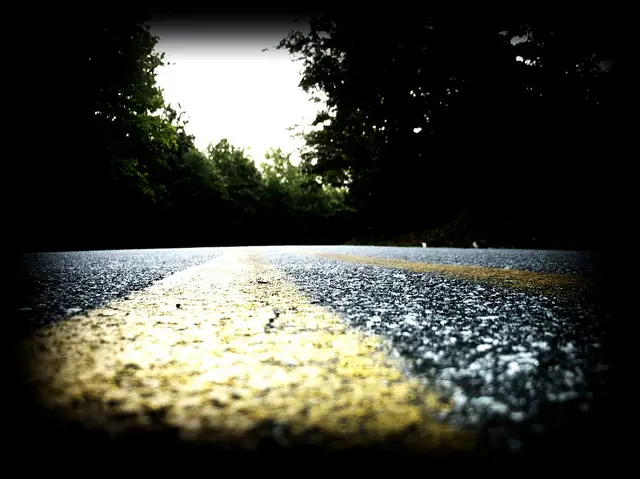We always welcome a Letter to the Editor to share with our readers – unsurprisingly they don’t always reflect the views of this publication. If you have something you’d like to share, get in touch and of course, your considered comments are welcome below.
This from Cllr Michael Lilley, Independent Green Councillor for Ryde East. Ed
On Thursday 30th August 2018 at 4pm in the Council Chamber at County Hall, there will be a special meeting of the Isle of Wight Council Scrutiny Committee, due to a call-in on a Traffic Regulation Order for double yellow lines on Hope Road in Elmfield, Ryde East.
This is the final opportunity for the residents of Hope Road and surrounding Ryde East area to challenge the IW Council in relation to the application for double yellow lines which has arisen as a consequence of conditions for the possible Westridge Farm/Hope Road Development of 80 new homes.
The Westridge Farm Development Up and Down Saga
It has been over two years since the pursuance for development on Westridge Farm/Hope Road started.
The first planning application was rejected by the planning committee on the grounds the access from Hope Road was not fit for purpose.
The Head of Place (Planning) called it back in and at the second planning meeting committee members this time deferred the decision. The local elections came in between and a new committee post-election granted planning permission with a range of conditions including the need for a Traffic Regulation Order to independently be applied for and to consider the avoiding danger to persons or other traffic users using Hope Road.
Traffic Regulation Order – Just a formality of a Delegated Decision by the Cabinet Member of Transport
A consultation process started in November 2017 and 48 households objected. In the last Friday of July 2018, a final report was published online recommending a TRO be issued so the housing development could go ahead and residents had seven days to respond and put forward further objections.
There were two specific detailed objections from myself as the locally elected representative and a representation of local residents.
The Cabinet Member for Transport (Cllr Ian Ward) is meant to respond and take on board responses to the report before making a final decision. I, as the local councillor, had written to the Cabinet Member of Transport with my detailed objections and asking for a meeting. I have not had a reply.
Impinging human rights of Hope Road residents
The residents’ objection letters had very detailed focused arguments why a Traffic Regulation Order should not be granted as a TRO can only be granted on safety grounds of road users. There is no evidence that double yellow lines are needed and required by the Road Traffic Act in this case.
The TRO clearly makes reference to the human right of a householder to have unimpeded access to their home. Granting a TRO that imposes unnecessary double yellow lines without any evidence of safety needs impinges on the human rights of Hope Road residents in accessing their homes.
Double yellow lines scrutiny call-In and need for transparency
I subsequently contacted members of IW Council Scrutiny and Councillor colleagues about the discrepancy of the process and Cllrs Julie Jones-Evans, Debbie Andre, and Geoff Brodie agreed that there was a good case for the delegated decision to be called in.
This call-in was subsequently supported by the Chair of Scrutiny. On 30th August 2018 at 4pm, will be the last chance for residents to get their voices heard.
The red herring of affordable housing
A Traffic Regulation Order is an entirely separate process from Planning Permission and residents have respected that and made their arguments very focused on the evidence needed for a TRO to be issued.
A housing development is not grounds on its own for issuing a TRO, but the report recommending the TRO and the delegated decision that is issuing the TRO only focuses on the issue that if the TRO is not issued then 80 houses will not be built.
It is usually residents that get accused of using emotions in their arguments not local authorities, but in this report the main focus of the IW Council’s argument is very simple, that a TRO has to be issued although there is no real evidence for a TRO (putting down double yellow lines) or 80 Affordable houses will not be built.
Unfair hand
Why issue a condition of a TRO in the first place if it is just a formality and not a condition? Residents’ valid arguments and their human rights are sacrificed for an argument of the greater good of overall IW getting affordable housing.
In my view, this is a red herring and the affordability of the houses to be built will not come into the price range of local people and IW wages. It is a private development to maximise profits for a developer and landowner.
I believe a delegated decision hiding behind the words “affordability” is playing an unfair hand.
Social Housing and good old fashioned council housing
I, as an IW Councillor, have actively participated in an IW Council cross-party group which recently published a report to the Policy and Scrutiny Committee for Regeneration, Housing, Planning and Environment titled “Delivering Affordable Housing for Families on the Isle of Wight”.
There has been a great deal of discussion locally and nationally on what the word “affordability” really means and locally what is the real housing need for Islanders.
It has already been decided by the IW Council that the Island Plan (the basis of the Westridge Farm planning decision) was not fit for purpose and is now under review and that the real need for Isle of Wight was social housing and good old fashioned council houses particularly one and two bedroomed homes or flats, not so-called affordable houses at 20% less of an inflated market value for sale.
The residents of Ryde East live in a Ward that has become development alley and seeing green land just marked for houses which do not address theirs and those of other IW families. This includes the needs of the family of the tenant farmer who has a risk of losing his livelihood by the loss of viable agricultural land for so-called affordable houses.
Transparency, fairness and due process of a Traffic Regulation Order
From the start of the Westridge Farm/Hope Road saga, local residents and the tenant farmer have put up strong focused arguments. Their arguments were backed by Ryde Town Council.
These arguments in the Planning Permission process although disputed by residents have at least gone through a transparent process through a committee where elected members collectively have made a majority decision.
The Traffic Regulation Order is a delegated decision by one person and I believe that the valid objections of residents have been overridden. I hope on 30th August that their voices are heard.
Challenging Isle of Wight’s corridors of power
The residents of Hope Road and Ryde East will gallantly continue to challenge the Isle of Wight’s corridors of power, and raise the little issue of defending their human rights.
There is still the unresolved issue of the civil law matter of rights of way established in the deeds of their homes with regard to the entrance and possible development site.
Country folk continuing their fight against landowners
Westridge Farm/Hope Road is, in my view, an everyday tale of coastal country folk and their continuing fight against the landowners who wish to maximise their profits.
You would think it was 1918 or even 1818, not 2018 when telling the story of tenant farmers and local residents in a fight to preserve community, traditions, human rights, preserving the last dairy farms on the Island, preserve local ecology and identity against the financial expectations of the landowners and developers.
Ongoing saga for two years
The story of the Westridge Farm/Hope Road development has been a continuing saga for the past two years. Now, the final stages of a long battle where the human rights of residents are sacrificed for what, in my view, the landowners of the Isle of Wight see is for the greater good and profit.
I, philosophically, see this battle as a case of tortoises (residents who just want social justice and a right to live in peace) and hares (those who want to make a quick buck).
It is important to remember the tortoise eventually beat the hare and I live in the valley of Ryde East tortoises. These erstwhile tortoises will plod on, surviving in life but remembering the betrayal of the few hares (the landowners and developers).
I as the elected member of Ryde East will solidly stand by my residents and make sure their voices are heard.
Image: auactivities under CC BY 2.0





